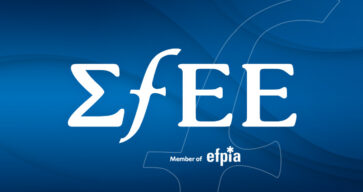European Immunization Week
This year’s European Immunization Week, April 20-26, 2020, is dedicated to all Healthcare Professionals and their daily struggle in fighting against the COVID-19 pandemic as well as their important contribution to disseminating vaccination, the latter being an investment in human life!
Athens, April 27 2020. – In the context of the European Immunization week (April 20-26) the World Health Organisation promotes the work and contribution of the medical society in disseminating and effecting vaccination programmes. Particularly at the current conjuncture, whereas the global community is faced with an unprecedented health crisis due to the COVID-19 pandemic, the value of vaccines as a shield for individual and collective protection is demonstrated ever more emphatically. This year specifically, attention is being paid to the Healthcare Professionals (Physicians, Nurses, Midwives and Reps), in their daily struggle to deal with the COVID-19 pandemic and their important contribution to disseminating vaccination.
The current situation demonstrates the importance of collective effort and solidarity. During all recent months, the pharmaceutical industry, in cooperation with universities, research institutes and other agencies, makes every possible effort in trying to develop a safe and effective vaccine against virus SARS-COV-2. In total, about 18 candidate vaccines are currently in pre-clinical or clinical trial, emitting positive signals for a safe and secure exit from this global health crisis.
SFEE (Hellenic Association of Pharmaceutical Companies), on the occasion of the Immunization Week, stresses the importance of vaccination in the elimination of life-threatening diseases.
According to the World Health Organisation (W.H.O.), each year 2-3 million deaths around the globe are avoided, thanks to immunization programmes, while 750,000 children are saved from disability. It is also estimated that 1.5 million deaths worldwide can be avoided, if immunization coverage is broadened. As far as our country is concerned, 226 persons were hospitalised in Intensive Care Units (ICU) with the flu – on the basis of affirmative lab test findings – of which only 44, 3% had been vaccinated, while 108 deaths were registered due to the flu. Furthermore, more than 3000 case of measles were recorded since 2017. Equally disturbing is the recording of 580 new cases of tuberculosis each year.
For all the above reasons, it becomes all the more necessary to observe the National Immunization Programme in place, covering all the age groups of infants, toddlers, children, adolescents and adults. At this period so critical for Public Health, even greater immunization ratios should be attained and any relevant delays should be avoided, as underscored by WHO.
The SFEE member companies make every possible effort each year for the timely delivery of sufficient vaccine quantities, so as to ensure full coverage of the population’s health needs. Nevertheless, the cost of this effort is predominantly covered by the companies themselves, because of the excessive compulsory refunds (clawback) that resulted from the curtailment of the Public Pharmaceutical Expenditure.
Our country must secure the sufficient provision of vaccine for the foreseeable future, without any restrictions, when – according to the medical community – a soar of seasonal flu and other diseases is to be expected. An additional 30%-50% volume of vaccine is to be needed in the period 2020-2021 in relation to the previous period, when the immunization expenditure reached almost 150mil. Euros while now it is expected to exceed the 200mil. Euros for the current period.
The earmarking of this immunization expenditure in the prevention funds, as it appears in other European countries’ budgets, will demonstrate the importance of vaccines in the protection of Public Health and will enhance the efforts of all, in actions that aim at broadening the vaccination coverage, the latter leading to long-term benefits for the public healthcare system and the population’s health. This, in tandem, will secure the sustainable funding of prevention, which, as mentioned in the Recommendation of the European Union Ministers for Health Council, has emerged as the objective pursued by every member-state.
The Hellenic Association of Pharmaceutical Companies (SFEE), showing civic responsibility as social partner, remains a generous prevention supporter and promotes the value of cooperation of all involved parties in the broad implementation of immunization programmes. In this framework, SFEE stresses the importance of adopting Immunization Objectives and creating a vaccination recording and monitoring system.
In this context, the President SFEE, Mr. Olympios Papadimitriou, pointed out: “The development of an integrated and structured healthcare policy on the prevention and immunization is necessary for the promotion of Public Health, since this must be considered an investment in Public Health and a priority for the State. The announcement of the Minister for Health on the creation of a National Immunization Registry is an important initiative, an action that will secure reliable data for the documentation of the population’s immunization coverage and its effectiveness. This initiative, however, would be incomplete, unless accompanied by the allocation of a prevention fund covering the cost incurred, for the vaccines necessary for an effective strategic intervention in safeguarding public health. Vaccine funding (i.e. for prevention) must be additional to the current pharmaceutical expenditure and must be simultaneously decoupled from the clawback clamp. Thus, sufficient quantity of vaccines can be secured for our country. This move must be an immediate priority, because it is only thus that sufficient and timely provision of vaccines for our country can be secured, amidst global demand. Through the appropriate adjustment, this allocation will also cover the needs for the COVID-19 vaccine that is expected to be launched in 2021, and which will have to be included, for all good reasons, in the National Immunizations Registry, once the latter is adopted”.
– END –


